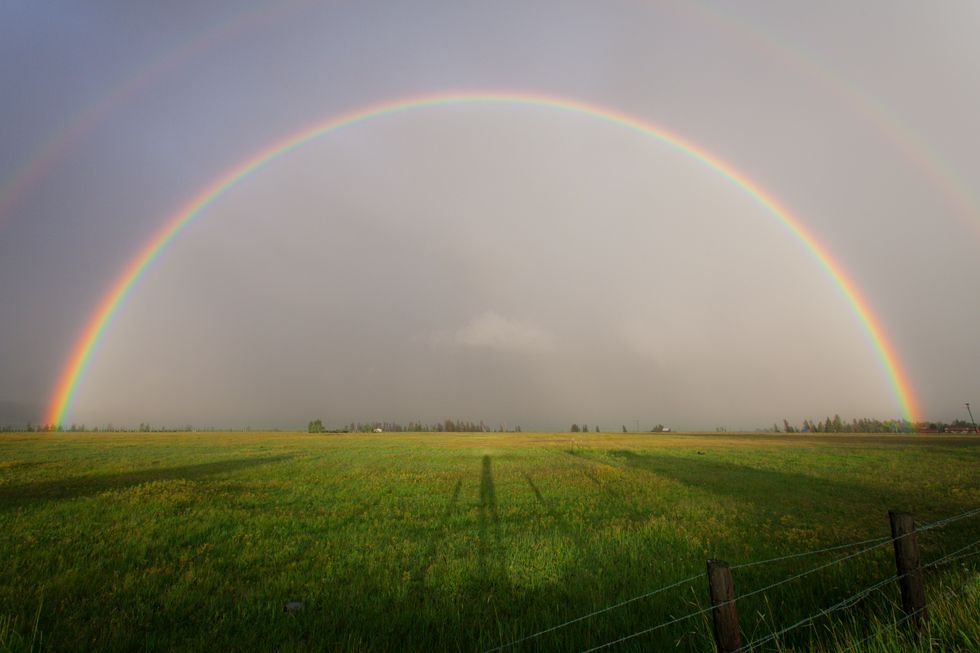As someone who came out of the closet loud, proud, and ready to be welcomed into a beautiful, loving community of people who lived freely and without judging others on the basis of their sexuality or gender identity, I have recently become dismayed at the apathy and blatant self-hatred within the LGBTQ+ community. I don’t mean to say that LGBTQ+ people are publicly hating themselves for their identities; luckily we seem to have mostly moved past that in recent years. No, my concerns are mainly centered around LGBTQ+ people hating each other.
I have “Liked” a plethora of LGBTQ-centric Facebook pages, and my Facebook addiction is well documented. For hours every day, I see posts from these pages float by on my phone screen. I had always hoped and expected that in the comments for these posts, I would find people supporting and lifting each other up as our community had done in the past. This is no longer the case.
People argue over whether or not others should be able to identify as this gender or that gender. People argue over whether or not asexuals and demisexuals are part of the LGBTQ+ community. People argue over which political candidates and parties should be supported. People argue over what words we should be able to use to describe ourselves and which are strictly off limits. And I don’t mean “argue” in the academic sense: I mean senseless, baseless personal attacks.
One of the most common attacks that I see is to dehumanize people for their gender. Anytime an article is written about a non-binary person, as sure as the Sun rises in the east, there will be a slew of unsupportive and hostile comments beneath it. Back in July, LGBT News ran an article containing a video (originally created by Mic) about, broadly, genderfluidity and how it is deserving of respect and equal treatment by the LGBT community. At the time of writing, this is the top comment on that article:
Jay continues further down in the comments to assert that “[genderfluidity] is indecisiveness” and “[it] came from Tumblr.” Genderfluidity, of course, did not come from Tumblr. And whether or not you believe in it or understand it, respecting another person’s gender identity (or remaining silent on the issue) takes less effort than writing demeaning comments.
This issue is not exclusive to the Internet. Gay men around me openly admit that they believe that gender is binary and they make fun of non-binary people for being “confused” or "attention-seeking." One of my friends had a bad experience with an asexual person and now has decided that he hates all asexuals. I routinely hear directly from gay men who tell me that “all bisexuals are crazy.” The list goes on and on, and these statements affect the community at large.
Some of my closest LGBTQ+ friends, even those who were politically active, refused to take part in any LGBT-themed events because they didn’t want to associate with a community that they see as one that lacks focus, direction, and empathy. Ignoring the fact that this non-participation is in itself evidence of a great amount of unchecked privilege, it is still disappointing that these promising LGBTQ+ people who could contribute in great ways to the causes that many of us hold dear want nothing to do with our community.
LGBTQ+ people are not, of course, in any dire situation that remotely resembles where we were in the 1950s and 1960s. However, regardless of your personal thoughts about it, this administration poses a real and proven threat to many LGBTQ+ people and our complacency, and lack of focus could lead to the suffering and even to the death of many members of our community. The LGBT community in the 1960s propelled all of the American society from a point where gay people were arrested for their sexuality and coming out of the closet usually meant losing all friends and starting over to a point where gay people could successfully run for and win political office. They achieved their goals and changed the world for good by acting as a unified front--lesbians, gay men, bisexuals, and transgender people alike. To continue doing the same, we must continue the idea of the unified front, but now we must be even more inclusive.
If someone identifies as gender non-binary, let them. If someone identifies as bisexual, let them, even if they are attracted to the opposite sex 95% of the time and the same sex 5% of the time. If someone identifies as demisexual and wants to consider themselves part of the LGBTQ+ community, let them. Even if you have no earthly concept of what those identities mean, take a step back and trust that the people identifying as them know themselves better than you. For many years, we were the "LGB" community, and we ignored the fact that transgender people (specifically transgender people of color) played an essential role in the gay liberation movement. The worst thing we could do would be to continue to make the same mistake of excluding people who need our help. After all, ours is a community of love, and love doesn’t leave vulnerable, well-meaning people to be oppressed.




 Photo by
Photo by  Photo by
Photo by  Photo by
Photo by 



















